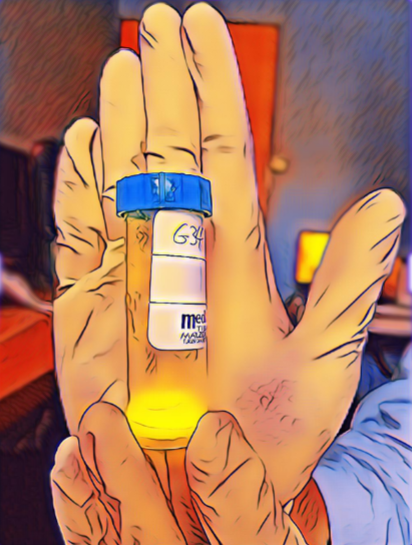An unexplored world inside us

Collected duodenal contents during a gastroscopy from a volunteer, after overnight fasting.
When conducting clinical trials for the development of new oral drug products, volunteers are typically young healthy adults. Older adults with or without cognitive impairment are often excluded from these studies. The objective of the project is to assess the physiology of the stomach and the upper intestine of older adults, the population who are the most frequent users of drug products. The project focuses on the collection of samples from the upper gastrointestinal lumen of young adults and individuals in advanced age with medium cognitive impairment at the Red Cross Hospital of Athens and to characterize them. This will help to evaluate differences of the physicochemical properties of the fluids from stomach and duodenum between the two groups.
It is estimated that the number of people with dementia would increase from 57.4 million cases globally in 2019 to 152.8 million cases in 2050, mostly due to increasing population growth and population ageing. The advanced age population is currently under-represented in clinical studies and the development of drugs for oral administration is typically performed in healthy young adults. Alzheimer’s disease (AD), the most common form of cognitive impairment, is associated with gut microbial alterations. In addition, data in mice with familial AD suggest that the expression of intestinal transporters is modified. As part of a broader investigation on the impact of aging on the luminal characteristics of the upper gastrointestinal tract (GI), this project focuses specifically on physicochemical characteristics of gastric and duodenal contents of older adults with cognitive impairment vs. healthy adults, under fasting conditions. These works will be of great importance for the development of novel biorelevant media with physicochemical properties more similar to in vivo conditions, in case there are differences between the two populations.

About the artist
Adam Asteriadis researches the differences in the composition of the upper gastrointestinal contents of geriatric patients with Alzheimer’s/Dementia, Parkinson’s disease, and Diabetes compared to healthy adults. Applying a filter and blurring the background, Adam created the above image from a photo taken during his project.

